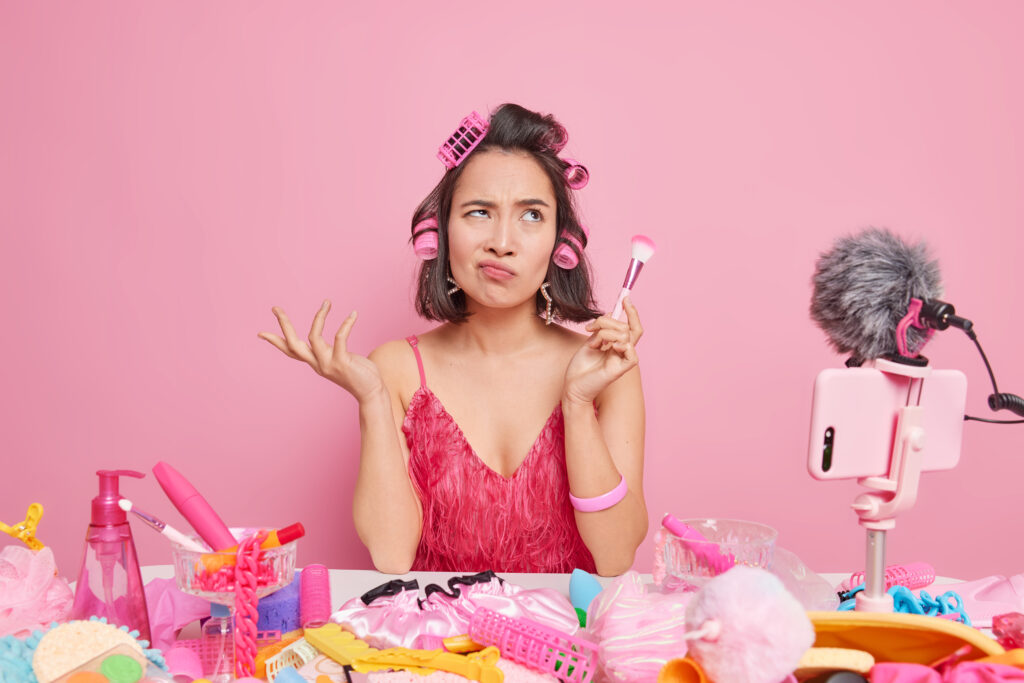Dark Side of Social Media Influencers
Introduction
A social media influencer is someone who has a lot of followers on social media platforms like Instagram or YouTube. They’re popular because people like what they post, whether it’s about fashion, gaming, or anything else. Because they have so many followers, companies pay them to promote their products to their audience. Basically, they’re like online celebrities who can convince people to buy stuff or pay attention to certain things.
In the era of digital dominance, social media influencers have emerged as modern-day celebrities, wielding unprecedented power and influence over millions of followers worldwide. With their carefully curated images, aspirational lifestyles, and persuasive endorsements, influencers shape trends, dictate consumer behavior, and define cultural norms in the digital landscape. However, beyond the glossy facade of sponsored posts and glamorous selfies lies a complex tapestry of ethical dilemmas, psychological challenges, and societal implications that demand deeper scrutiny and critical reflection.
Dark Sides
1. Unrealistic Standards and Body Image Issues:

The images plastered across social media feeds are often far removed from reality. They are meticulously crafted to showcase an idealized version of beauty and perfection. From flawless skin to sculpted bodies, influencers project an unattainable standard of physical attractiveness. It leaves many followers feeling inadequate and insecure about their own appearance. Research has shown that long exposure to idealized images on social media can promote body dissatisfaction. It can lead to poor confidence, and messy eating habits, particularly among weak young audiences.
Moreover, the prevalence of photo editing tools, filters, and digital enhancements further distorts perceptions of beauty, blurring the line between reality and fantasy. The relentless pursuit of physical perfection spread by influencers not only spreads harmful beauty standards but also erodes self-confidence and self-worth, fostering a culture of comparison and self-criticism that undermines mental well-being.
2. Materialism and Consumerism:

Influencers are not merely content creators; they are also shrewd marketers skilled at promoting products, brands, and lifestyles to their followers. By showcasing luxury goods, designer labels, and wasteful experiences, influencers create a narrative of wealth, success, and indulgence that captivates audiences and fuels consumerist desires. The attraction of the influencer lifestyle, characterized by wealthy vacations, designer wardrobes, and exclusive events, can instill a sense of envy. It may lead to aspiration among followers, driving them to seek validation and fulfillment through material possessions.
This relentless pursuit of material wealth and status spreads a cycle of overconsumption, debt, and environmental degradation, as individuals strive to keep pace with unattainable standards of affluence and abundance. Moreover, the incessant promotion of branded products and sponsored content blurs the line between genuine recommendation and commercial endorsement, It undermines the trust and authenticity in influencer marketing.
3. Deceptive Advertising and Ethical Concerns:

While influencers may present themselves as authentic voices sharing genuine experiences, the reality often involves undisclosed partnerships, paid endorsements, and covert advertising tactics. The seamless integration of sponsored content into influencers’ feeds can make it difficult for followers to distinguish between organic recommendations and paid promotions, leading to confusion and skepticism about the authenticity of influencers’ endorsements.
Furthermore, influencers may fail to disclose their financial relationships with brands or comply with advertising regulations, risking legal repercussions and undermining trust in their credibility. The lack of transparency and accountability in influencer marketing raises ethical concerns about the manipulation of consumer perceptions, the exploitation of trust, and the erosion of advertising standards in the digital age.
4. Mental Health Impacts:

Behind the glamorous facade of social media fame, many influencers grapple with the hidden toll of mental health issues exacerbated by the pressures of maintaining a flawless online image. The relentless pursuit of likes, comments, and followers can create a toxic cycle of validation-seeking behavior, as influencers measure their self-worth and success in terms of social media metrics.
The constant scrutiny, comparison, and pressure to perform can take a toll on influencers’ mental well-being, leading to anxiety, depression, and burnout. Moreover, the blurred boundaries between personal and professional life in the digital realm can exacerbate stress and exhaustion, as influencers struggle to maintain a balance between authenticity and strategic branding.
5. Cyberbullying and Online Harassment:

Despite their elevated status and public visibility, influencers are not immune to the dark side of social media, characterized by cyberbullying, trolling, and online harassment. The anonymity afforded by the digital realm emboldens trolls and detractors to unleash vitriolic attacks, hateful comments, and malicious rumors aimed at undermining influencers’ credibility and reputation.
The relentless barrage of negative feedback and criticism can take a toll on influencers’ mental health, leading to feelings of insecurity, self-doubt, and emotional distress. Moreover, the lack of effective moderation tools and support systems leaves influencers vulnerable to online abuse, with few paths for recourse or protection.
6. Shallow Relationships and Faux Authenticity:

In the pursuit of popularity and engagement, influencers may prioritize quantity over quality in their interactions with followers, fostering shallow relationships and superficial connections. The relentless focus on accumulating likes, comments, and shares can overshadow the importance of genuine engagement and meaningful connections, as influencers tailor their content to cater to algorithmic preferences and maximize reach.
This emphasis on surface-level interactions undermines the authenticity of influencers’ relationships with their audience. It erodes trust and intimacy in favor of brief moments of online validation. As followers yearn for deeper, more meaningful connections that transcend the superficiality of social media, influencers face a growing imperative to cultivate genuine authenticity and foster genuine human connection in the digital age.
Conclusion

In conclusion, the dark side of social media influencers includes numerous ethical, psychological, and societal challenges. It demands critical examination and collective action. From spreading unrealistic beauty standards to fostering materialism and consumerism, influencers wield significant influence over their followers’ perceptions, behaviors, and attitudes. By shedding light on these hidden hazards and fostering greater transparency, accountability, and ethical integrity in influencer marketing, we can strive to create a more authentic, empathetic, and responsible digital culture. It prioritizes genuine connection, mental well-being, and ethical integrity for all.

